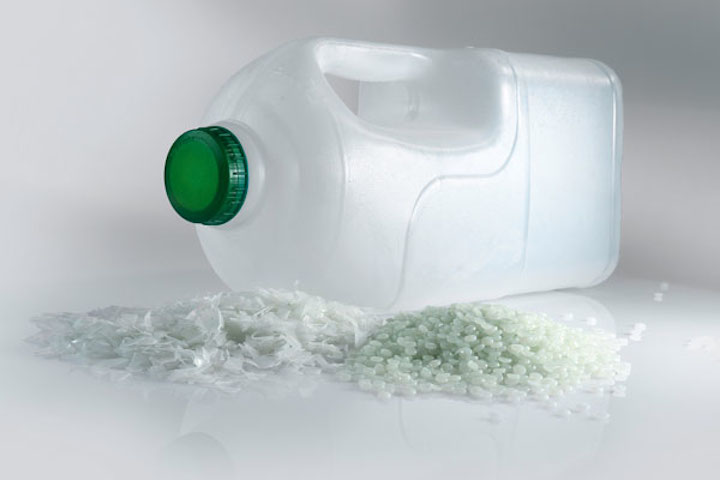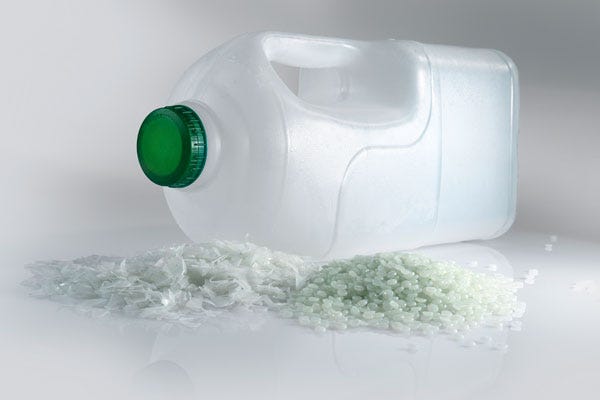When Closed Loop London began producing food contact grade HDPE from transparent bottle material back in 2008, the company turned to B+B Anlagenbau GmbH and Erema Engineering Recycling Maschinen und Anlagen GmbH for support in meeting the technical requirements this involved. Due to increased demand for recycled material from major brand owners, it was not long before more capacity was needed. Closed Loop London decided to expand its existing plant capacity to 4,800 kg/h in total, and once again called in the services of B+B Anlagenbau and EREMA
February 18, 2014

When Closed Loop London began producing food contact grade HDPE from transparent bottle material back in 2008, the company turned to B+B Anlagenbau GmbH and Erema Engineering Recycling Maschinen und Anlagen GmbH for support in meeting the technical requirements this involved. Due to increased demand for recycled material from major brand owners, it was not long before more capacity was needed. Closed Loop London decided to expand its existing plant capacity to 4,800 kg/h in total, and once again called in the services of B+B Anlagenbau and EREMA
Closed Loop is a recycling company headquartered in Australia with more than 10 years experience in providing comprehensive environmental solutions across industries including aviation, hospitality and health. Located in Melbourne, Sydney, London and Hong Kong, Closed Loop is the first in the world to recycle both PET and HDPE plastic bottles into  food grade material for new food and drink packaging. The new expansion line in this case was for the production of food grade recycled HDPE from HDPE milk bottles, a process involving "dry cleaning," air classification, hot wash, sink float separation, mechanical drying from B+B and subsequent extrusion with upstream decontamination from EREMA.
food grade material for new food and drink packaging. The new expansion line in this case was for the production of food grade recycled HDPE from HDPE milk bottles, a process involving "dry cleaning," air classification, hot wash, sink float separation, mechanical drying from B+B and subsequent extrusion with upstream decontamination from EREMA.
The basic principle of the plant concept developed by B+B is to treat the regrind material in a dry state as long as possible while it is being processed. Centrifugal force is used during the dry cleaning, thus conserving expensive resources such as water, with no elaborate plant engineering required for processing.
For food grade applications, however, a washing step is crucial. The core component of the washing facility is the hot wash, which removes any unwanted elements such as stickers or adhesives from the regrind material, effectively eliminating milk residues and - most importantly -all associated odors. The hot wash system works continuously and is fully automatic to ensure maximum availability and minimum maintenance intervals.
Food contact grade HDPE regrind material is then extruded on two Vacurema advanced 1716 TE systems and reused in the production of milk bottles. Closed Loop London ordered what is now the third of these systems - each with a capacity of 7,000 t/year - as part of the expansion.
Erema's Vacurema technology has achieved a market share of 50 percent in the U.S. and 30 percent in Europe for the processing of rPET for direct food contact. That same technology, slightly modified to include an additional extruder degassing, is used to produce food contact grade HDPE regrind.
The determining factor was the highly efficient, food contact compliant decontamination upstream of the extrusion process. The patented pre-treatment of the HDPE flakes at raised temperature and in high vacuum before the extrusion process removes moisture and migration materials from the feedstock very effectively and in a stable process environment.
About the Author(s)
You May Also Like


